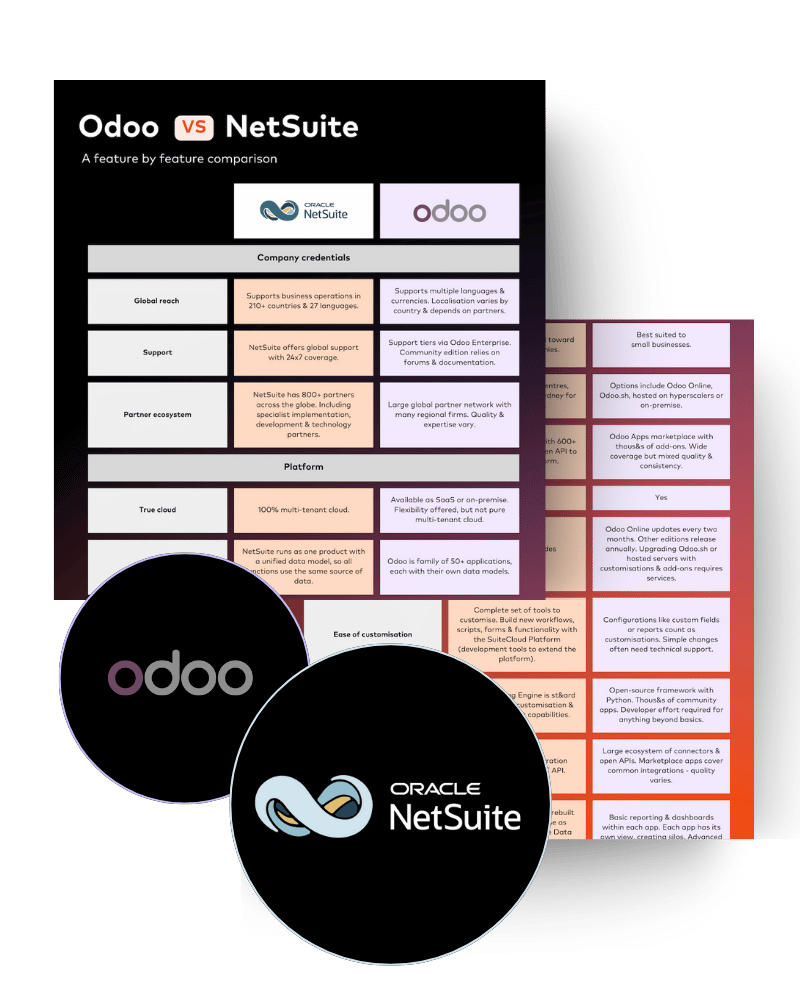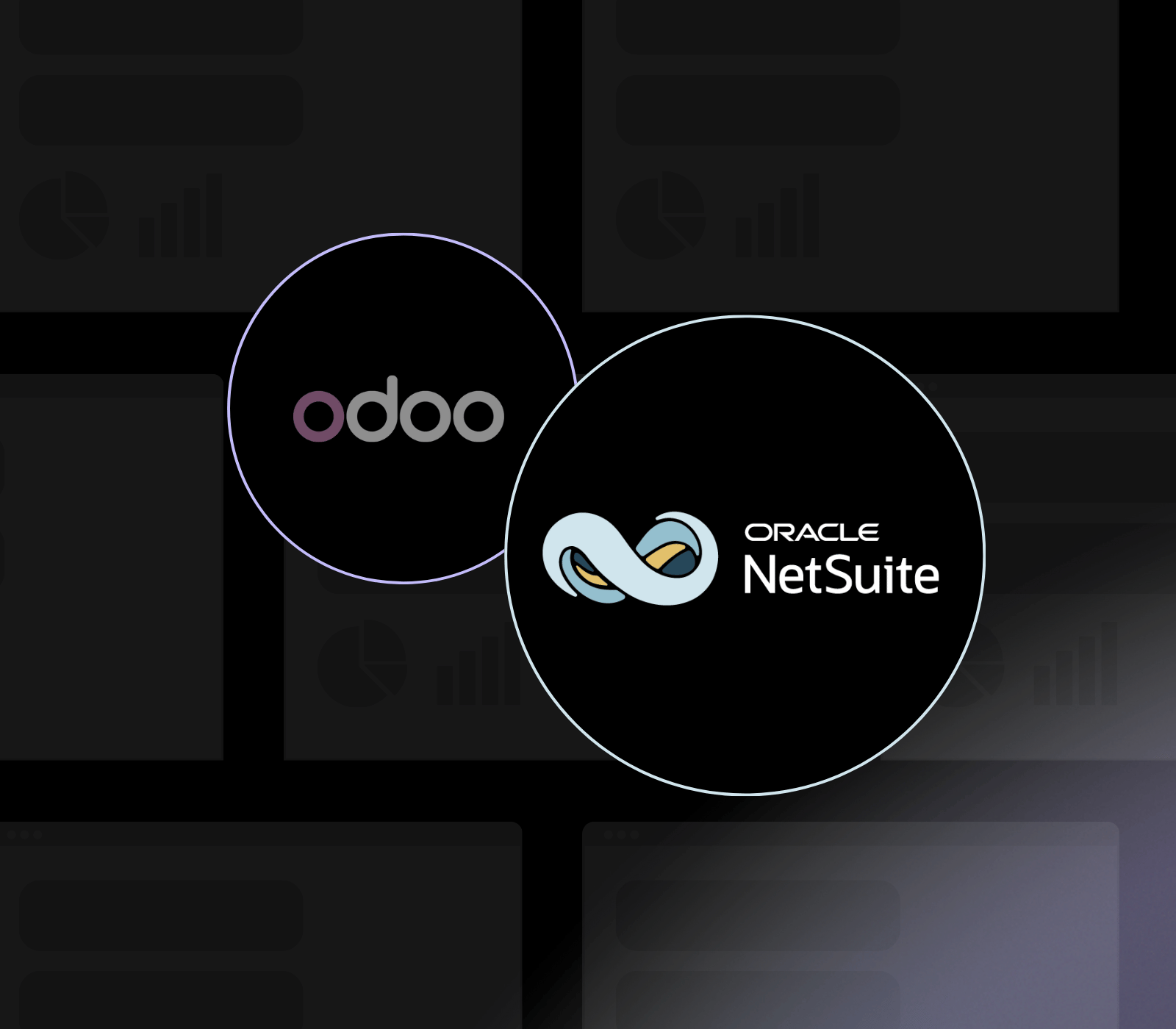From open source to enterprise-grade ERP
-
True cloud ERP
NetSuite’s multi-tenant cloud platform gives every customer the latest version, no upgrade delays or hidden costs.
-
Global consolidation
Streamline intercompany eliminations and gain real-time visibility across all subsidiaries with a unified, automated platform.
-
Deep customisation
Tailor workflows, roles and reports with low-code tools and proven integrations that evolve with your business.
Understanding NetSuite vs Odoo
-
See NetSuite ERP in action
There’s no better way to explore how NetSuite ERP can benefit your organisation than by experiencing it firsthand.Request a product tour

FREE INFOGRAPHIC
Compare NetSuite and Odoo
Download our feature-by-feature comparison infographic to see how NetSuite outperforms Odoo.
Questions to ask before you choose
NetSuite delivers automatic, twice-yearly upgrades that retain customisations and keep you current. With Odoo, upgrades are manual, often complex and can introduce compatibility issues or require rebuilds.
NetSuite offers a low-code environment with certified extensions and robust APIs. Odoo relies more heavily on developer input with unverified third-party apps that can create technical debt or maintenance risks.
NetSuite provides built-in integration tools and scalable middleware support. Odoo’s modular setup often leads to higher integration overhead and inconsistent data flows between apps.
NetSuite may come with a higher upfront cost, but it often delivers greater long-term value by reducing reliance on third-party apps, streamlining operations and avoiding costly rebuilds after upgrades.
Yes. NetSuite offers low-code workflow tools that let you configure role-based approvals, custom processes and tailored logic – all within a secure, governed framework.
NetSuite is modular too, but unlike Odoo, each module is part of a unified platform with consistent data, native integration and shared security standards.
NetSuite was built for multi-entity management, supporting consolidated reporting, global compliance and local tax logic. Odoo’s architecture is more limited and often requires significant custom development to scale.
NetSuite offers real-time, cross-functional reporting from a single data model. Odoo’s modular setup can result in fragmented data, making consistent reporting and insight harder to achieve as complexity grows.
Choose the platform that scales with you
-
Engineered for scale
Support ambitious expansion strategies with built-in global capability, robust data governance and seamless multi-subsidiary management.
-
Strategic clarity & operational control
Gain the real-time visibility, workflow alignment and integration depth you need to drive smarter decisions and sustainable growth.
Frequently asked questions about NetSuite
No. Many common changes – like fields, dashboards and workflows – can be made using NetSuite’s point-and-click tools. For more advanced use cases, NetSuite supports extensibility without code sprawl.
NetSuite supports everything from single-entity operations to complex multi-entity, multi-currency organisations. You can start with a lean setup and add modules for things like advanced financials, inventory, or planning as you grow – without needing to re-platform.
Yes. Businesses often replace accounting tools, inventory systems, CRM, and reporting platforms by consolidating onto NetSuite. This simplifies IT overhead and improves data reliability.
Implementation is done either through through Oracle NetSuite or certified solution partners like Annexa. A typical deployment covers finance first, with additional modules or integrations added in phases. Timelines vary from a few months for straightforward projects to a year or more for multi-entity transformations.
let’s chat
Start your journey with Annexa
Request a one-on-one meeting with an Annexa NetSuite expert to discuss your unique challenges and opportunities.
- ✓ NetSuite ecosystem experts
- ✓ Leaders in integration
- ✓ Award-winning team
- ✓ Strategic partner network
- ✓ Innovation always





